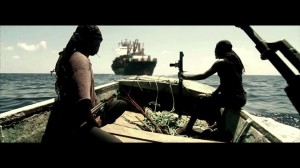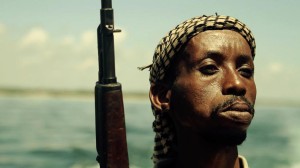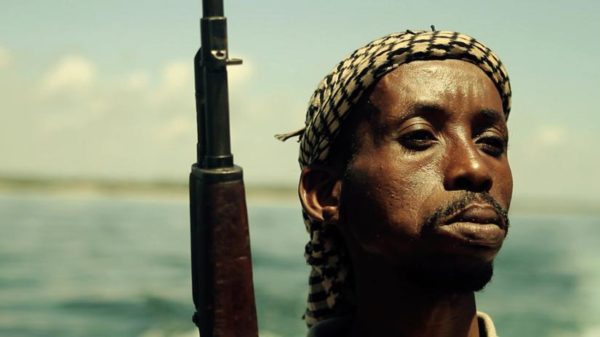When Cutter Hodierne got the call, at 11:00 p.m. on the day before Thanksgiving, he assumed it was a prank.
The voice on the other end congratulated him for his short film, Fishing Without Nets, being selected to the Sundance Film Festival, one of the most prestigious film festivals in the world. After the caller repeatedly assured Hodierne that he wasn’t being pranked — “that’s what everybody I call says” — the realization set in: this 24-year-old H-B Woodlawn grad and college dropout was mere weeks away from presenting his film at the festival that had helped the careers of indie film icons like Kevin Smith, Robert Rodriguez, Quentin Tarantino, Paul Thomas Anderson and Steven Soderbergh.
“This is just a big dream since I picked up a camera for the first time,” said Hodierne, 24, in a phone interview.
Fishing Without Nets was written, directed, produced and edited by Hodierne. It is a fictional story about Somali pirates, told from the perspective of the pirates. Filmed in Kenya, utilizing amateur Somali actors, the short is a testament to Hodierne’s perseverance and resourcefulness.
Together with producing partners Raphael Swann (another H-B Woodlawn grad), John Hibey (also a co-writer), Harold Otieno and Abubakr Mire, Hodierne managed to overcome challenge after challenge over the course of three months to complete the filming of the 17-minute film.
 First, there was the casting of the film. Mire, who Hodierne described as a one-man Kenyan talent agency, helped to round up a bunch of Somali immigrants for auditions in a nightclub.
First, there was the casting of the film. Mire, who Hodierne described as a one-man Kenyan talent agency, helped to round up a bunch of Somali immigrants for auditions in a nightclub.
“Most of the guys cast as pirates were just local Somali guys living in Kenya who looked the part,” Hodierne said.
Then there was the matter of obtaining guns from the police for the filming. The Kenyan government, which has strict gun laws on its books, was not easily persuaded that Hodierne and his small crew were trustworthy enough to be given (real) automatic weapons.
“People are very suspicious of anybody trying to rent a bunch of guns from the police,” he said with a laugh. Eventually, Hodierne got his way — and his guns.
Then Hodierne found himself in a real-life life-and-death situation. He and his producing partners were robbed at gunpoint by a group of men. After giving the armed men everything they had, Hodierne and company were marched out to the ocean.
“We were thinking we were going to die, were were going to be killed,” Hodierne said. In the end, they were let go — and Hodierne started to look on the incident as a fortuitous bit of film preparation.
 “It suddenly hit me — that’s what it feels like to be robbed by Somali pirates,” he said. “It was like we were paying for research material for the film.”
“It suddenly hit me — that’s what it feels like to be robbed by Somali pirates,” he said. “It was like we were paying for research material for the film.”
We asked Hodierne about the technical challenge of making such an expensive-looking film on a small budget. The film’s trailer starts out with a sweeping aerial shot of a large container ship on the open ocean — the kind of thing you don’t typically see outside of big budget Hollywood blockbusters. Hodierne, however, was coy about elaborating on his filmmaking process.
“It’s movie magic,” he said. “I’m in the business of illusion.”
After the premiere at Sundance in January, Hodierne plans to screen Fishing Without Nets at several other festivals. But Fishing Without Nets is just the start. Hodierne is now working on a screenplay for a feature-length version. His script consultant is David Burkman, one of Hodierne’s filmmaking teachers and mentors at H-B Woodlawn, and a close family friend.
Hodierne, who dropped out of Emerson College after just his freshman year and went on to become a touring concert filmmaker for the band U2, credits his experience at H-B Woodlawn for helping to set him on his remarkable career trajectory.
“Being able to create your own path for your education was huge,” he said.
Promotional stills courtesy Cutter Hodierne


